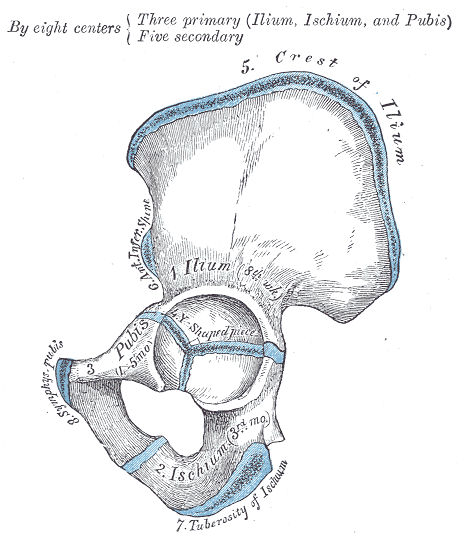The Danger in a Certain Knowing: A Review of Cristina Rivera Garza’s ‘The Iliac Crest’
The book is short, but every word is precise. Once unwrapped, an endless number of connections can be made.

Henry Vandyke Carter, Public domain, via Wikimedia Commons
The struggle to remember the name of this bone, the Iliac Crest, becomes a central point of the novel.
It is in this novel, unlike as in many others, where using the term “unnamed narrator” is hardly apt, in order to briefly describe the character whom we the readers must trail.
The woman in the novel has five names, as life so often warrants, and the narrator has none. Or she may have six names or four names. It is difficult to tell.
The Iliac Crest by Cristina Rivera Garza was published in 2002 and originally written in Spanish, La Cresta De Ilión. In 2017, the novel was first translated by Sarah Booker and published by The Feminist Press of the City University of New York.
The novel brings us into the writings of an unnamed doctor, reliably unreliable. The reader and he himself presume he is a man. On a dark and stormy night, as any horror story would have it, two mysterious women invade the narrator’s home and trouble him with their own secret language. One of these women claims to be the famous Mexican short story writer Amparo Dávila. However, this is untrue, considering that woman’s youth.
Much fog surrounds who they are, how the two know each other, what their language is, and why they have decided to camp in the home to begin with. Eventually, they claim to know the narrator’s secret — he is a woman.
The story, if one may even call it that, is tightly wound under 200 pages.
The Iliac Crest deals with borders as the author was traveling between Houston and Mexico at the time.
In the novel, Rivera Garza destabilizes binaries: male and female, north and south, and reality and simulation.
Among all of the mysteries, The Iliac Crest is a mystery novel unconcerned with deciphering the questions it poses. Who is the real Amparo Davila? Where is she? These questions are besides the point: “You need the ocean for this: to stop believing in reality. To ask yourself impossible questions. To not know. To cease knowing. To become intoxicated by the smell. To close your eyes. To stop believing in reality” (page 67).
Among all of the mysteries, The Iliac Crest is a mystery novel unconcerned with deciphering the questions it poses.
Cadence Chen is an Editor-in-Chief for ‘The Science Survey.’ She enjoys journalistic writing for its artistic concision and sharp insights. Cadence...










